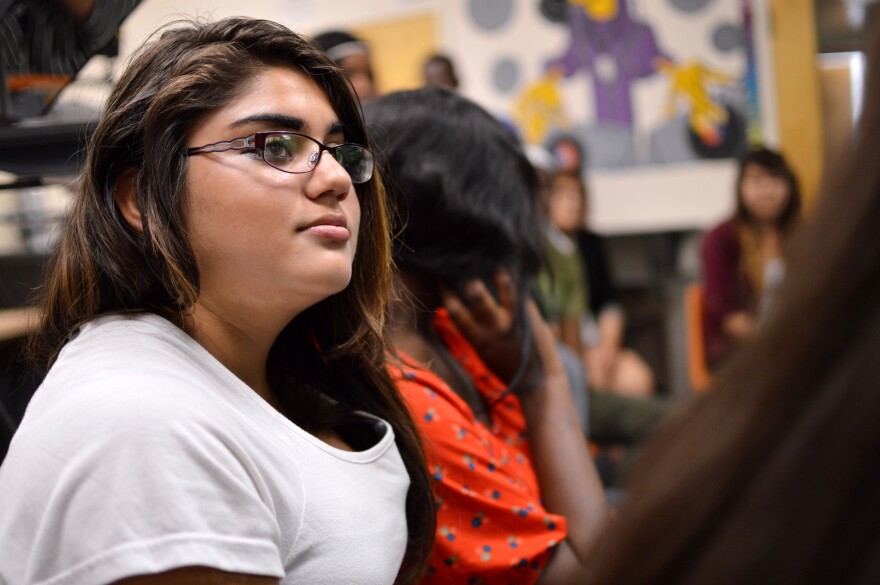Texans are carrying about $70 billion in student loans, according to the Dallas Federal Reserve Bank. The good news is that Texans have less student debt than than the national average. The bad news is that people in Texas are more likely to be delinquent in repaying those loans.
Among the complex reasons behind these numbers: the cost of college in Texas; the high percentage of Texans who attend community college; and the college readiness of Texas high schoolers.
Timothy Bray, an urban policy researcher at the University of Texas at Dallas, recently talked with a group of high schoolers in Fort Worth about their plans after they graduate. Some were shooting for Princeton, others for Texas Wesleyan down the street.
“Have you figured out how you’re going to pay for it?” he asked the group.
“Oh yes,” they answered in a chorus. “Scholarships.”
'I don't want ... a student loan'
Few of the students knew how much their dream college would cost, and none planned to pay for it with loans.
"I don’t want to do a student loan,” one girl said.
“Why not?” he asked.
Her response was weighted with a barrage of negative attention to the student loan industry, and chatter from Washington, D.C., of a new student loan bubble that could bring down the economy.
“It’s debt,” she said.
Teenagers want scholarships, don’t want loans, and don’t plan very well -- no surprises there.
But many students are so afraid of debt that they enroll part-time and pay for each class as they can. This will stretch out the time to getting a degree, sometimes indefinitely.
“When you look at the students in the Dallas County Community College District, they are the poorest they have ever been in the history of the district,” said Joe May, chancellor for the Dallas County Community College District.
May says the strategy of enrolling part-time and working full-time keeps students from having to take out big loans, but also increases the risk of dropping out.
“We find that a surprising number are paying back loans at a time when they don’t have resources and are borrowing money to pay back loans," he said.
Working to educate students -- and parents
Compared to other states, colleges in Texas are pretty inexpensive, and almost half of Texas college students are in community college, which are even cheaper. But students who drop out won’t see any income boost without a college degree, and still have to pay back what they borrowed.
These people soon become a walking advertisement against the idea that a college education is worth it.
Wenhua Di, an economist at the Dallas Federal Reserve, wants to stop this message from spreading.
“When student and families are well-informed, the loan is a good tool to get you there,” she said.
Di sees two dangers to the economy with the higher rates of delinquency in paying back loans: One is that student debt keeps people from buying a house, getting married, or saving for retirement -- and that slows down the Texas economy. The other is that a fear of college debt will keep people out of college, leaving Texas with a less-educated workforce.
“We don’t want to scare people away from their ideal schools, just because of the cost,” she said.
Di is part of a chorus of adults telling students not just to go to college, but to go with a plan for how to pay for it, and how to turn that education in a career. Especially if scholarship money doesn’t appear when tuition is due.




